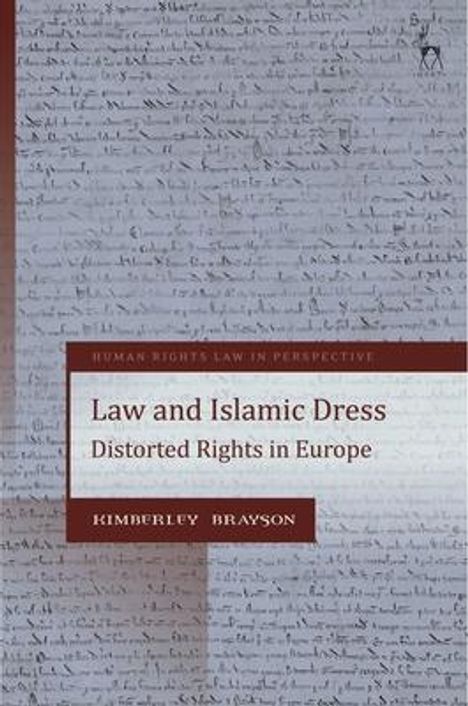Kimberley Brayson: Law and Islamic Dress, Gebunden
Law and Islamic Dress
- Rights and Fascism in Europe
Lassen Sie sich über unseren eCourier benachrichtigen, sobald das Produkt bestellt werden kann.
- Herausgeber:
- Colin Harvey
- Verlag:
- Bloomsbury Academic, 08/2027
- Einband:
- Gebunden
- Sprache:
- Englisch
- ISBN-13:
- 9781509910496
- Umfang:
- 208 Seiten
- Gewicht:
- 454 g
- Maße:
- 234 x 156 mm
- Stärke:
- 25 mm
- Erscheinungstermin:
- 5.8.2027
- Hinweis
-
Achtung: Artikel ist nicht in deutscher Sprache!
Ähnliche Artikel
Klappentext
This book conceptualises the European Court of Human Rights' judgments on Islamic dress as manifestations of the fascist impulse in modern human rights law.
The author argues that human rights are thus not an antidote to fascism but are constituted through a fascist inflection and implicated in circulating fascism in the everyday. The inability of human rights to say 'no' to laws regulating and criminalising Islamic dress in Europe engenders an institutional Islamophobia in the law and Islamic dress debate in Europe.
The author interrogates the historical emergence of human rights, through a methodology of interdisciplinary, theoretical oscillations between feminism, decolonial, phenomenological and neo-Marxist thought to establish the rights / fascism dialectic. She argues that beyond exclusion and erasure the ownership of rights discourse enables the exploitation of racialised and gendered bodies for the maintenance of material and epistemological privilege with a white, Christian, male norm. It is this moment of ownership, where rights are both propertied and property, that constitutes the rights / fascism dialectic. The author goes on to argue that the rights / fascism dialectic operates at the heart of the Islamic dress debate in Europe to create the impossibility and instrumentalisation of Muslim women's bodies in European public space.
The book challenges shifting legal justifications by exposing the functioning of capital, colonialism, patriarchy and power at the European Court of Human Rights in key cases such as Sahin v Turkey and SAS v France. Theoretical insights of the rights / fascism dialectic are applied to the law and Islamic dress debate in the multicultural UK, assimilationist France and at the ECtHR. The conclusion is that the Islamic dress debate in Europe manifests the gender and racial differentiation and instrumentalisation that is essential to the maintenance of human rights and the modern, capitalist state in which rights are enmeshed.





